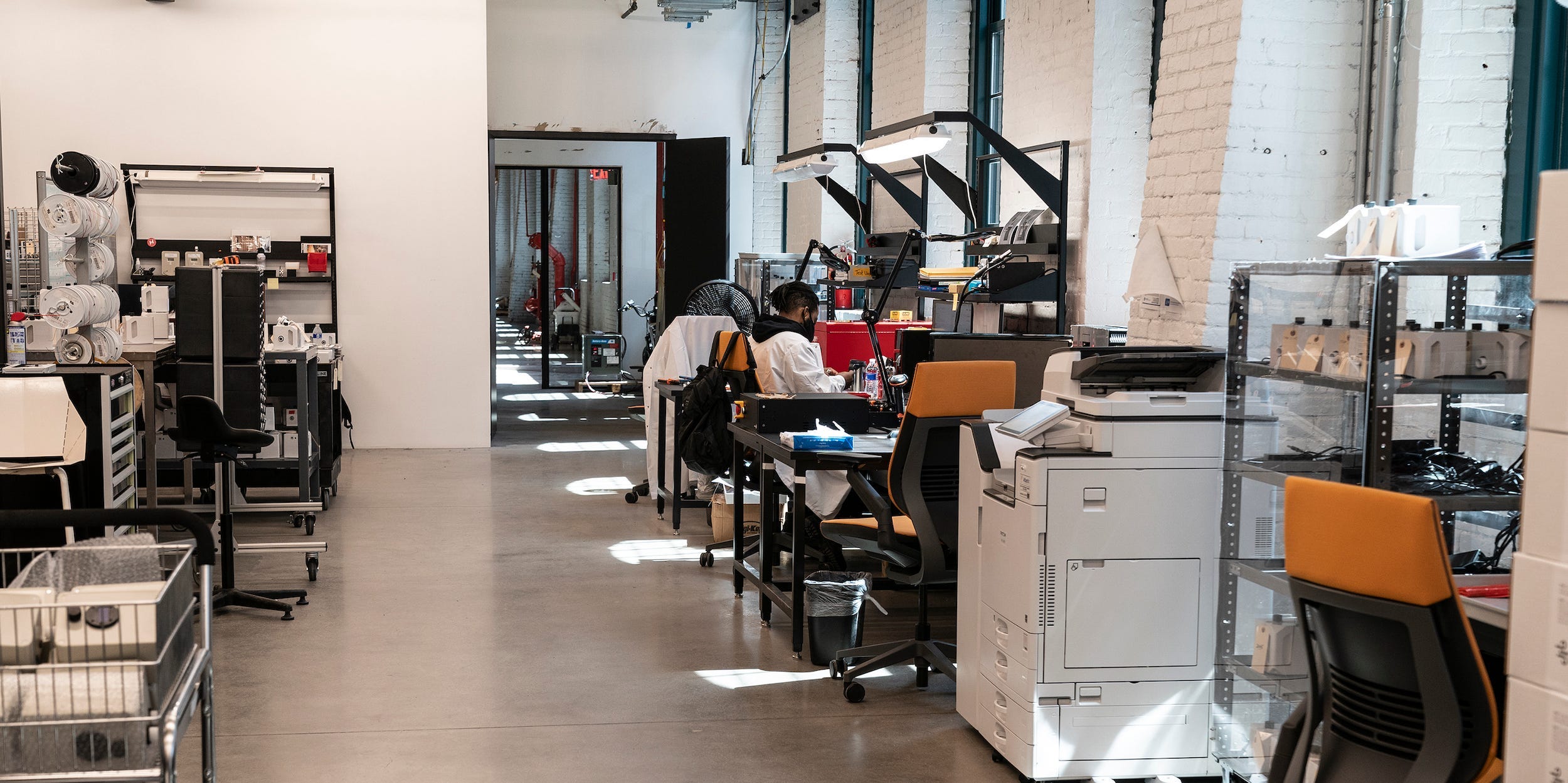
Lev Radin/Pacific Press/LightRocket/Getty Images
- US manufacturers continued to recover in April, but new risks are slowing their rebound.
- Popular gauges of industry growth showed supply-chain issues and worker shortages hindering production.
- Reopening will ease concerns over bottlenecks and massive backlogs, Oxford Economics said.
- See more stories on Insider's business page.
Factories can't keep up with the reopening of the American economy.
Popular metrics tracking the US manufacturing industry indicated strong growth in April. The Institute for Supply Management's purchasing managers' index dipped 4 points to 60.7, while IHS Markit's own gauge rose to a record high of 60.5. Readings below 50 indicate industry contraction, while those above the level signal growth.
The April reports further support the industry's resilience throughout the pandemic, but underlying trends point to growing risks at American factories. Supply-chain disruptions and raw-material shortages plagued manufacturers throughout the month as the broader economy rebounded. New orders accelerated even further amid stronger client demand, leading backlogs to climb at their second-fastest rate since IHS Markit began collecting data.
"In 35 years of purchasing, I've never seen anything like these in terms of extended lead times and rising prices," one business in the plastics and rubber sector told ISM. Another remarked that they're "worried about getting the materials to support" such strong sales.
At the same time, gauges of manufacturing-industry employment slowed last month, leaving firms to address burgeoning order books with inadequate headcounts. The hiring woes, coupled with historic supply chain pressures, dragged IHS Markit's measure of business confidence to a three-month low.
The labor-force shortfall mirrors dynamics seen throughout the service industry as well. Businesses from restaurants to rideshare companies have reported difficulty in hiring as the economic recovery ramps up. Payroll growth is expected to near 1 million new jobs in April, but worker shortages could curb the labor market's rebound sooner than economists expected.
The growing backlogs and rising material costs are likely to augment the sharp rise in inflation that the Federal Reserve has been warning of for months. Officials have said that reopening and stimulus would boost price growth in the near term before this "transitory" surge fades away.
Manufacturers reported passing down higher input costs to their clients, adding to the inflationary dynamics seen elsewhere in the economy. The rate of sector-specific inflation cooled slightly from March, but still registered at its second fastest on record, according to IHS Markit.
Still, experts see most of the industry pressures easing as the economy settles into a new normal. The continued rollback of economic restrictions will help firms more effectively address issues curbing production, Oren Klachkin, lead US economist at Oxford Economics, said.
"Supply-chain stress will hinder, but not derail, manufacturing's expansion," he added. "Bottlenecks will gradually open up as the global economy returns to full health."
